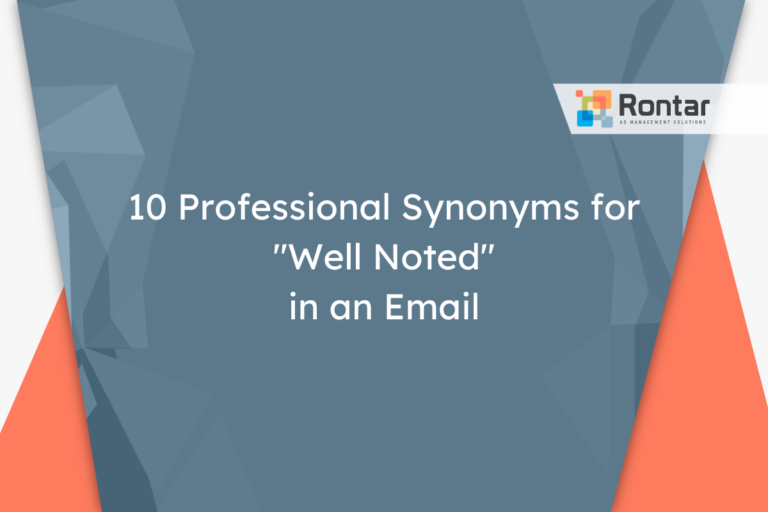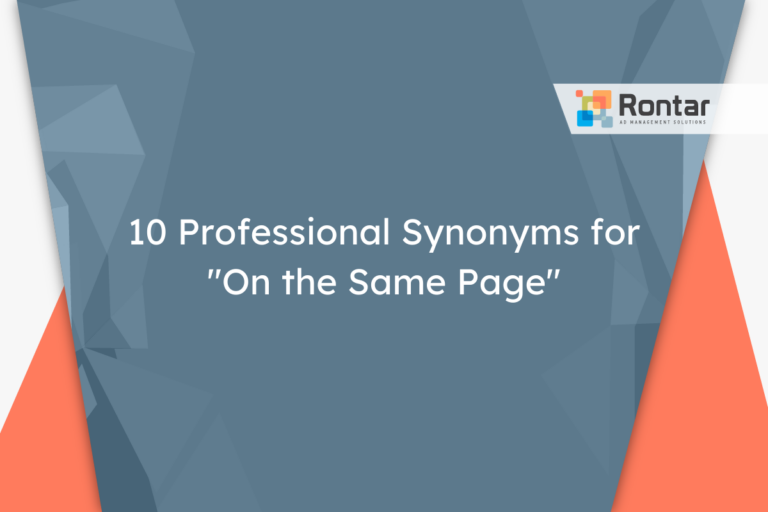10 Professional Alternatives to “Sincerely” in an Email

Ending an email with the right sign-off can be more challenging than it seems. “Sincerely” has long been the go-to for professional correspondence, considered both respectful and polite. However, variety can add a touch of personality and better suit the tone of different messages.
In this article, we explore ten professional alternatives to “sincerely” that can enrich your email closings and make your communication more effective.
Is It Professional to Say “Sincerely”?
Yes, saying “sincerely” in an email is considered professional, formal, and polite. This phrase has been used for many years in written communication to show respect and genuine sentiment towards the person you’re writing to. It’s suitable for a variety of situations, particularly when you’re concluding a formal email or letter where you have discussed business matters, made a request, or expressed thanks.
Here is an example of how “sincerely” can be used in an email:
Dear Mr. Thompson, Thank you for your assistance with the project this week. Your expertise helped us meet our deadline comfortably. We appreciate your dedication. Sincerely, Alex Morgan
Let’s look at the pros and cons of using “sincerely.”
Pros:
- It’s widely recognized as a respectful sign-off.
- Shows professionalism and formality in communication.
- Suitable for a variety of formal or semi-formal emails.
Cons:
- Can seem overly formal or outdated in casual or informal contexts.
- May feel impersonal or generic in emails to close colleagues or friends.
While “sincerely” is a great way to end an email, you might consider using an alternative phrase in certain situations.
If the tone of your email is more casual or if you have a close relationship with the recipient, a synonym or alternative might feel more appropriate and personal.
The choice of using synonyms or alternatives also helps to vary your sign-offs, which can add a fresh touch to your emails. Avoiding overused phrases ensures your emails stand out and reflect your unique voice and the specific context of your message.
10 Other Ways to Say “Sincerely” in an Email
Finding the right words to end an email professionally can make a big difference in your communication. Here are ten professional alternatives to “sincerely.”
- Best Regards
- Kind Regards
- Warm Regards
- With Appreciation
- Respectfully
- Yours Truly
- Best Wishes
- With Thanks
- Yours Faithfully
- Cordially
1. Best Regards
Comparing “Best Regards” to “sincerely” shows it’s also professional and polite, but carries a slightly more friendly tone. It’s formal enough for business emails but has a warmth that makes it suitable for various contexts.
This alternative is better suited for when you’re communicating with someone you already have an established relationship with or want to convey a sense of warm professionalism. It balances formality with friendliness elegantly.
Here’s a sample message:
Dear Ms. Harper, Thank you for sharing your insights during the meeting. Your contribution was invaluable. Best Regards, Liam Johnson
2. Kind Regards
“Kind Regards” is another professional synonym for “sincerely” that leans towards being friendly and warm. It’s formal but has a gentle touch, making it ideal for both business and more personable emails.
Use this alternative when you wish to end your message on a positive note, especially after a productive conversation or when expressing gratitude. It communicates respect and kindness without being overly formal.
Here’s a sample:
Dear Mr. Daniels, Your feedback on the project was incredibly helpful. We look forward to implementing your suggestions. Kind Regards, Sophie Lee
3. Warm Regards
This phrase is close to “sincerely” in terms of being professional, yet it adds a layer of personal warmth. “Warm Regards” is perfect for messages where you want to express genuine concern, friendliness, or appreciation.
We recommend using this alternative in emails where a personal touch is beneficial. It’s excellent for communicating with colleagues you know well or in messages that are meant to build or maintain a positive relationship.
Example:
Dear Team, Your dedication to our clients has been outstanding. Thank you for your hard work. Warm Regards, Carlos Smith
4. With Appreciation
“With Appreciation” is similar to “sincerely” in its professional and formal tone, but it directly expresses gratitude. It’s a tailored choice for emails where you are acknowledging someone’s effort or contribution.
When gratitude is a key element of your message, this alternative shines the brightest. It’s particularly well-suited for follow-up emails after a meeting, event, or receiving help from someone.
Example:
Dear Professor Lane, Your guidance on my thesis project has been invaluable. I am truly grateful for your support. With Appreciation, Emily Rodriguez
5. Respectfully
“Respectfully” compares to “sincerely” by being formal and professional. However, it adds an extra layer of deference and respect, making it perfect for correspondence with superiors or in sensitive situations.
This is a great alternative when you’re addressing someone in a higher position or need to emphasize your respect for the recipient. It’s also suited for delicate topics where showing high regard is crucial.
Sample use:
Dear Mayor Johnson, I write to express my concerns regarding the recent policy changes. I hope for a reconsideration of these measures. Respectfully, George Bennett
6. Yours Truly
“Yours Truly” offers a formal, yet slightly more personal alternative to “sincerely”. It’s traditionally used in correspondence where the writer wishes to express a genuine sense of personal investment or closeness.
This phrase is better suited for official communications where the sender also wants to add a personal touch. It’s often used in letters but can also fit well in certain emails.
Here’s how it looks in an email:
Dear Ms. Wright, I am excited about the opportunity to collaborate with your team on the upcoming project. Yours Truly, Jacob Miles
7. Best Wishes
“Best Wishes” is akin to “sincerely” in politeness but carries a friendlier and more personal tone. It’s both professional and polite, making it versatile for various types of emails.
Use this alternative when you want to express goodwill towards the email recipient, especially when concluding messages that involve future endeavors or wellbeing.
Here’s how you might use it:
Dear Mrs. Chen, We appreciate your efforts to reach a mutual agreement. We look forward to a productive partnership. Best Wishes, Nora Kim
8. With Thanks
Like “sincerely,” “With Thanks” is professional and polite, but it specifically emphasizes gratitude. It’s a perfect closing for emails where you want to clearly show appreciation.
We recommend using this alternative in situations where someone has assisted you, provided valuable insights, or when you want to express thanks for any reason.
Example use:
Dear Mr. Gonzalez, Your advice on navigating the contract negotiations was incredibly helpful. We've successfully reached an agreement. With Thanks, Rebecca Luo
9. Yours Faithfully
“Yours Faithfully” is a formal and professional synonym to “sincerely” that’s typically used in British English. It’s usually reserved for situations where you do not know the recipient personally.
This ending is best for formal correspondences, especially when there’s no previous relationship with the recipient. It conveys respect and professionalism effectively.
Here’s an example:
Dear Sir or Madam, I am writing to apply for the position advertised. I am eager to bring my skills to your team. Yours Faithfully, Samantha Green
10. Cordially
“Cordially” is another option that’s professional and polite, similar to “sincerely”. It implies warmth and politeness in a formal setting and is broad enough to be used in various contexts.
This alternative is suitable for any formal email, especially those that initiate a relationship or where maintaining a courteous, respectful tone is essential.
An application sample:
Dear Hiring Committee, I appreciate the opportunity to discuss the Marketing Coordinator role. I'm looking forward to your feedback. Cordially, Max Turner
Final Thoughts
Choosing the right closing for your email can significantly impact the tone and perception of your message. While “sincerely” remains a steadfast and professional option, exploring alternatives allows for greater flexibility and personalization in your communication. Whether you aim to convey warmth, appreciation, or respect, each alternative offered in this article provides a valuable tool to fine-tune your emails to better match the relationship and context of your correspondence.
As email remains a primary form of professional communication, mastering these subtle nuances will enhance your ability to connect and communicate effectively.
Remember, the best choice depends on the message you wish to convey and the relationship you have with the recipient.






